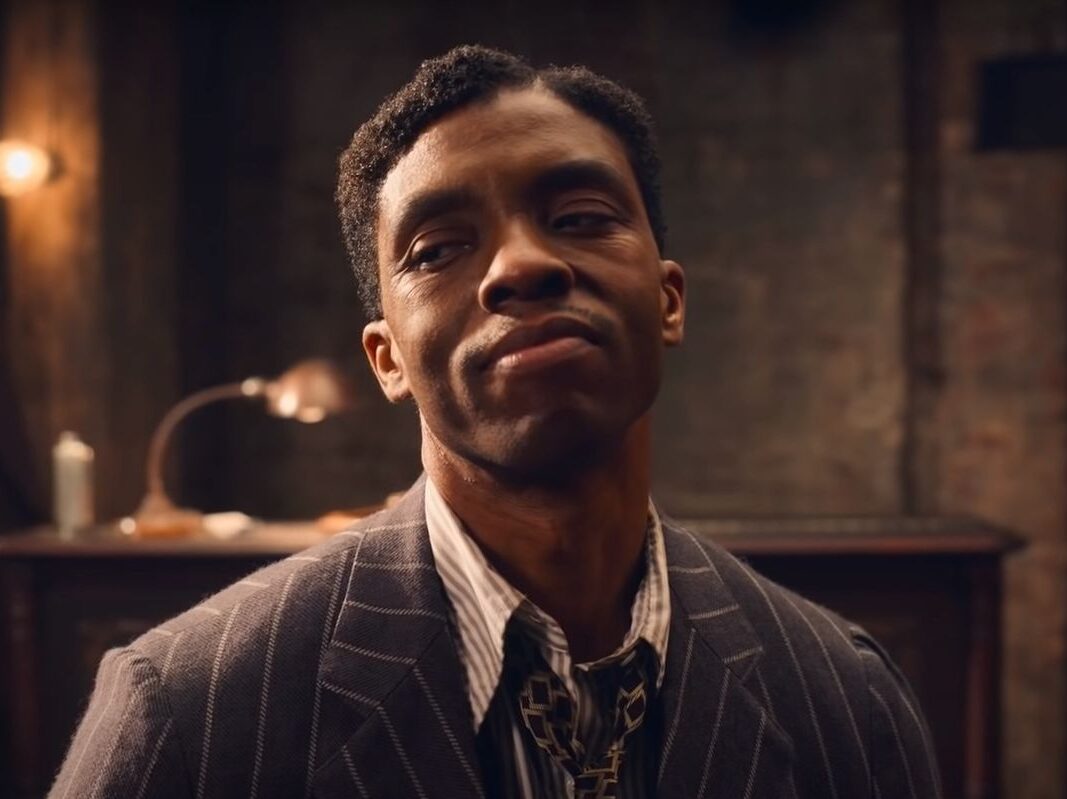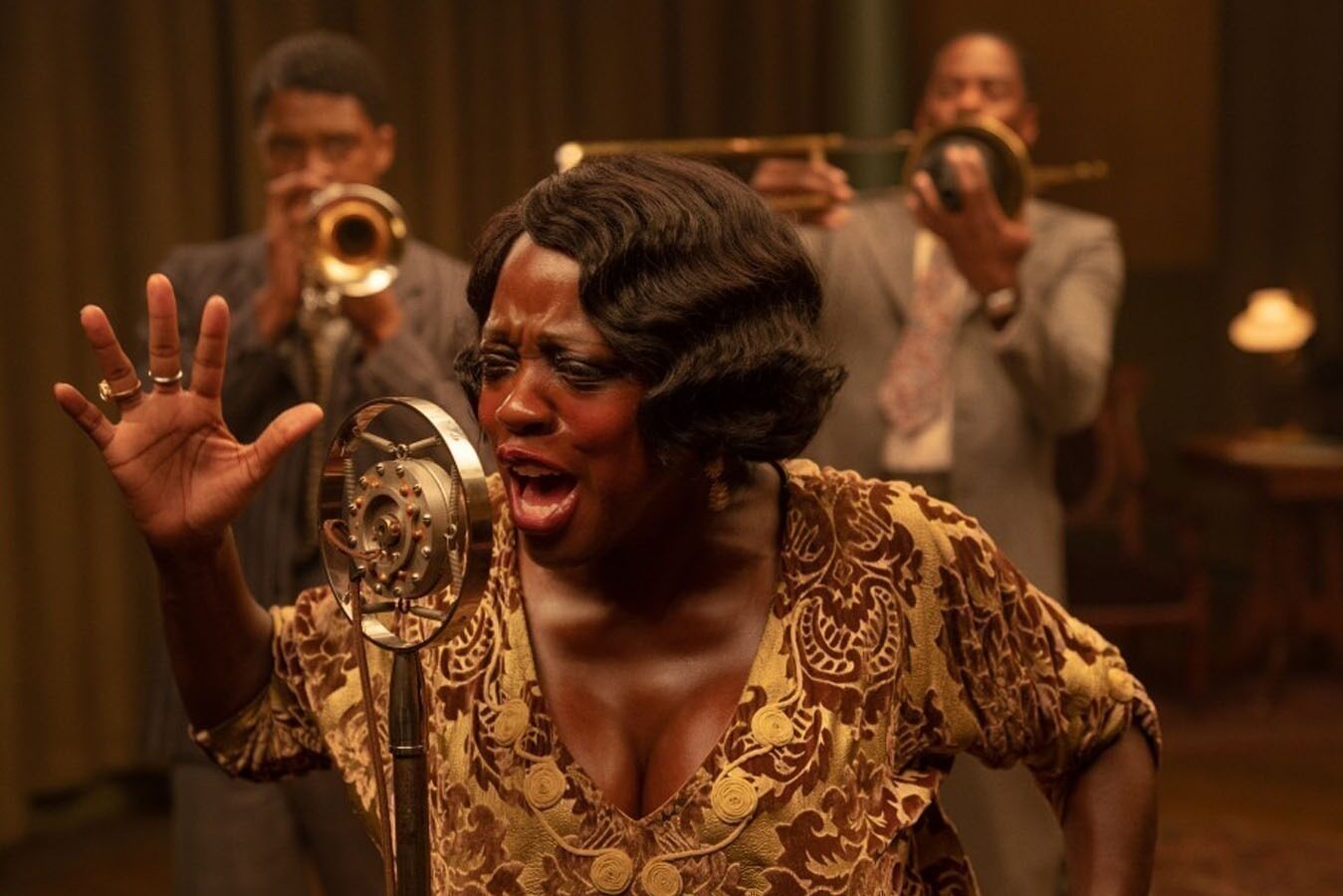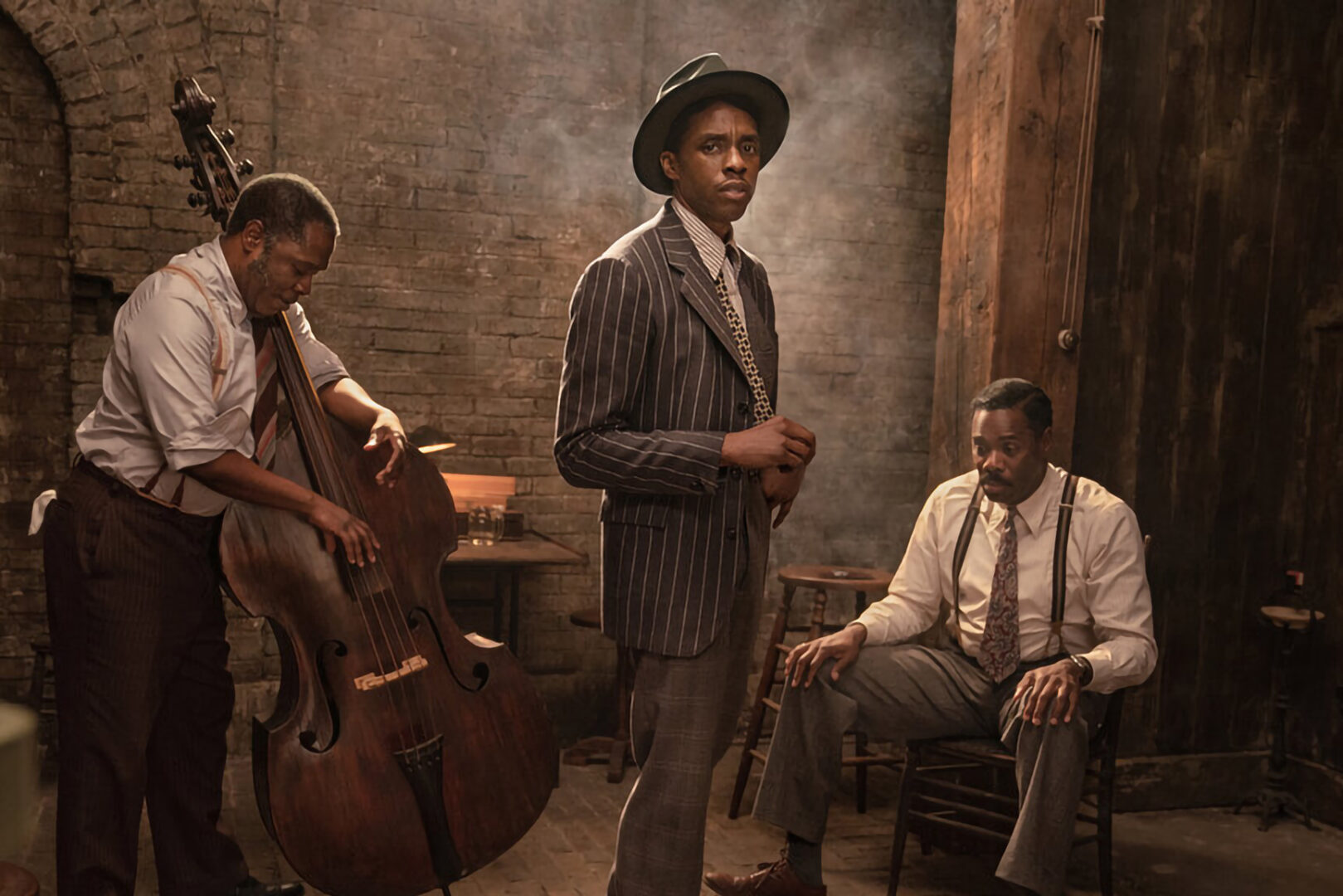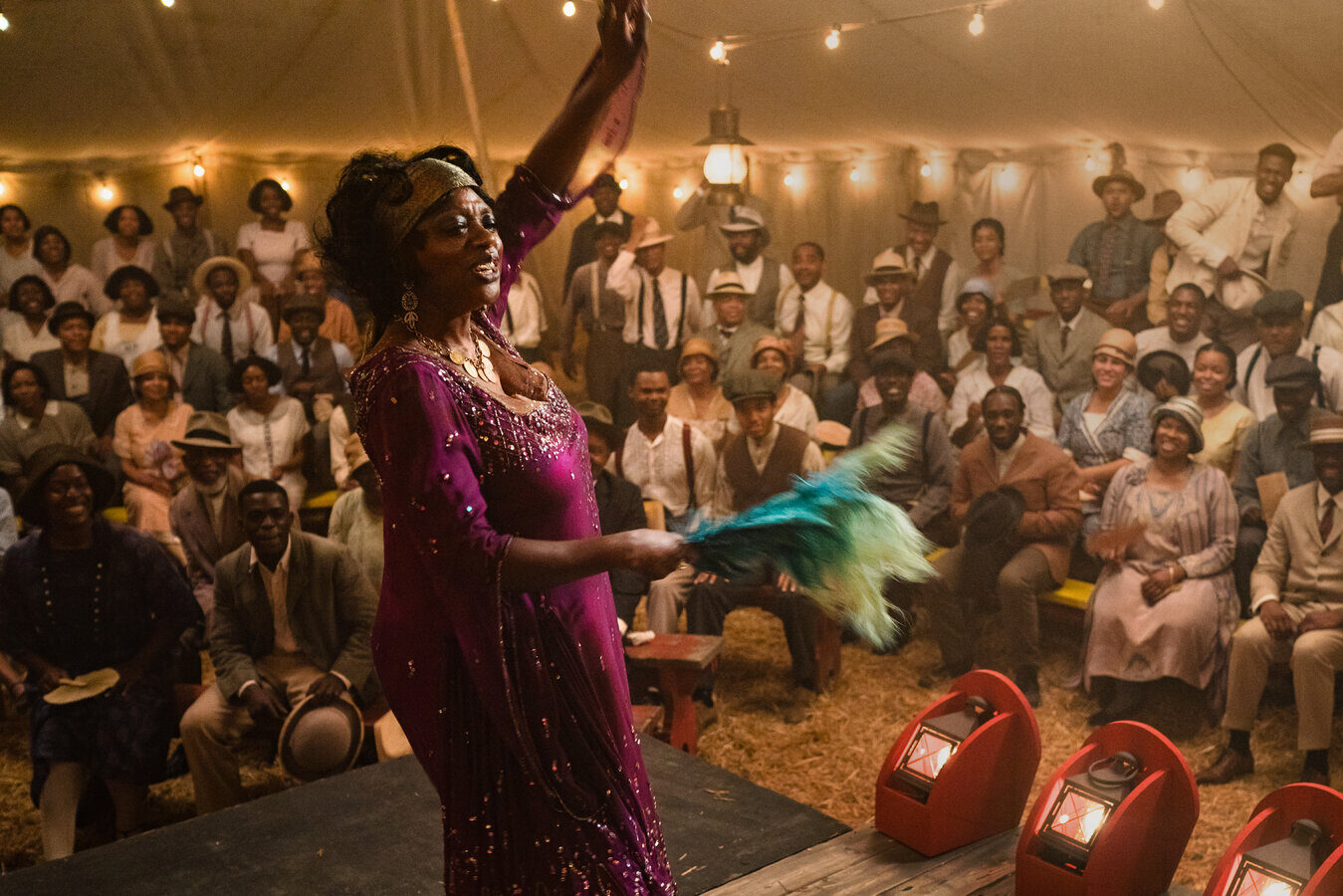Ma Rainey’s Black Bottom Reviewed: Chadwick Boseman’s Final Role Is Also His Best
Ma Rainey's Black Bottom - the final performance by Chadwick Boseman - shows the immense talents of the actor we lost too soon.
This article is more than 2 years old

Before Chadwick Boseman died earlier this year of colon cancer at the age of 43, he made only fifteen films. But within that relatively small library, Boseman played a remarkable group of Black men: Jackie Robinson, James Brown, Thurgood Marshall, not to mention his iconic portrayal of T’Challa. In these roles, Boseman showed his audiences men who had to struggle for greatness and who had to fight the past to make a better future.
In doing this, Boseman became one of those great men he portrayed and an impressive actor who was only beginning to show the breadth of his talents. Boseman gives us one final Black man fighting for significance that fits alongside those others with his last performance in Ma Rainey’s Black Bottom. Not only did Boseman save his best performance for last, but it’s also a fitting reminder of what a tremendous actor the world is missing without Boseman in it.
Ma Rainey’s Black Bottom is based on the play of the same name by Pulitzer Prize-winning playwright August Wilson. The play was the second in what is known as Wilson’s “Century Cycle,” ten plays that would each focus on a different decade in the 1900s, with an attempt to show the Black experience in the 20th century. The most notable of these plays was Fences, which came out the year after Ma Rainey’s Black Bottom, and which Denzel Washington directed the film adaptation of in 2016.

Ma Rainey’s Black Bottom is based on the eponymous “Mother of the Blues,” who became one of the earliest recorded African-American professional blues singers. August Wilson’s play, and this adaptation from Ruben Santiago-Hudson, and director George C. Wolfe center around Ma Rainey – played by Viola Davis – yet the story isn’t based on true events. Instead, Wilson crafted a story that showed both a strong Black woman protecting her power as a groundbreaking musician, and the up-and-coming horn player Levee – played by Chadwick Boseman – contending to make a name for himself.
Ma Rainey comes to Chicago for a recording session in the sweltering 1927 summer. As her band – consisting of Chadwick Boseman’s Levee, Glynn Turman as Toledo, Colman Domingo as Cutler, and Michael Potts as Slow Drag – wait for Ma to arrive, the band discusses their past, the difficulties the Black man has to face, and their ambitions while in their small rehearsal room.
Both Ma Rainey and Levee represent the ways that white men in power have used Black entertainers for their own success. Ma Rainey’s manager, Sylvester (Dusan Brown), and record producer, Sturdyvant (Jonny Coyle) try to take charge of the recording process, but aren’t ready for the powerful force that is Ma Rainey. Even small choices like not getting Ma the Coca-Cola she requested for the session feels like a way they can get the better of Ma. The same is true of Levee’s interactions with these two men, as Sturdyvant has boosted Levee’s confidence, making him feel like a star, and offering to possibly record some of his songs.

This duality places Ma Rainey at a low point, as she feels as though she is being walked all over by the white men in charge, whereas Levee is given an inflated ego, giving him the impression that nothing can stop him on his way to the top. This grappling with power, both between Ma Rainey and Levee, as well as between the Black musicians and white men behind-the-scenes builds with resentment and exasperation until they’re ready to burst.
Like with Fences, Ma Rainey’s Black Bottom is full of great Wilson monologues that help add layers to who these people are, and can completely change our perspective on these characters. This is where Boseman shines, and is an opportunity to see all the talents he encompassed. In the monologues, Boseman is jovial, world-weary, terrifying, and exhausted – sometimes all in the span of a few minutes. Maybe it’s because of Denzel Washington’s connection with Wilson’s work, but it’s hard not to see some of the legendary actor’s talents in Boseman. The amount of gravitas and power Boseman brings to the role of Levee is staggering, and immediately places this as one of the finest performances of 2020.
Boseman’s performance is so commanding, it even overpowers Viola Davis, decked out in flamboyant makeup, and gold teeth. Ma Rainey seems like a larger-than-life personality, and Davis does her justice. However, Davis is never hammy, but rather, she’s direct and trying to take control of a world that wants to control her. In her first scene, she confidently walks by a whites-only dining room, with her girlfriend Dussie Mae (Taylour Paige) on her arm, head held high and completely indifferent to what others might think about her. Ma Rainey lives life exactly the way she wants to, and Davis’ portrayal is big, but in a way that fits the person.

While the film is primarily about these two great personalities, Colman Domingo stands out as Cutler, the bandleader who tries to maintain the temperament of both Ma Rainey and Levee. Especially compared to Boseman and Davis, Domingo is quiet, yet dominant in this group when the need calls for it.
But despite the two central roles vying for attention in bombastic ways, Ma Rainey’s Black Bottom still feels intimate and restrained – for better and for worse. While director George C. Wolfe has made films like 2008’s Nights in Rodanthe, and 2017’s The Immortal Life of Henrietta Lacks, Wolfe has three decades worth of experience in the theater, adapting such great playwrights as Eugene O’Neill, Larry Kramer, and Tony Kushner.
Considering the origins of Ma Rainey’s Black Bottom, Wolfe’s choice as director is arguably too safe. One doesn’t have to know this was based on a play going in to figure it out, and Wolfe seems content to stay relatively close to the source material, without making too many big choices. That’s not to say Wolfe does a poor job here – on the contrary – but there’s not much Wolfe brings to this that makes it feel cinematic.
Yet it’s those two lead performances by Chadwick Boseman and Viola Davis that makes Ma Rainey’s Black Bottom shine. Especially considering this is a film about how the world can seem full of possibilities, just to have them taken away in an instant, it’s near-impossible to not think of what the world lost when Boseman died. Thankfully, we have this phenomenal final performance to remind us of the talent Boseman had, a perfect conclusion to a career and life over far too soon.

Ma Rainey’s Black Bottom Movie Review Score










